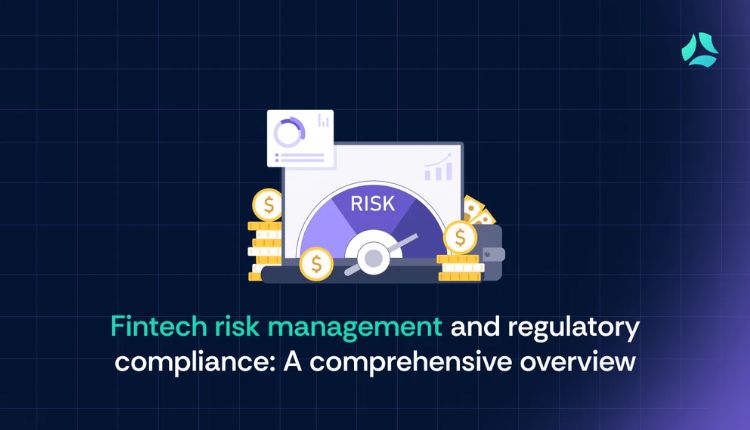For startups in the financial sector, compliance is no longer optional; it’s a survival strategy. A single misstep, whether in AML checks, fraud monitoring, or licensing, can lead to heavy fines and even reputational damage. That’s where a tailored fintech risk assessment becomes crucial.
The rise of artificial intelligence is reshaping the global economy, with worldwide AI spending expected to grow at a 29% compound annual rate from 2024 to 2028. This wave of innovation is creating enormous opportunities for startups, but it also comes with heightened risks.
By leveraging professional business risk assessment services, founders can identify blind spots early, strengthen internal controls, and build investor confidence while staying on the right side of regulators.
Why Compliance is important for Startups
For young companies, compliance isn’t just a box-ticking exercise. In highly regulated industries like financial services, compliance forms the backbone of credibility. A single violation, whether it’s a missed reporting requirement, weak AML controls, or data privacy breaches, can lead to:
- Hefty fines that strain already tight budgets
- Operational interruptions during investigations
- Loss of investor confidence due to perceived risks
- Reputational harm that is difficult to recover from
For startups aiming to scale quickly, avoiding these pitfalls is as important as raising capital or acquiring customers.
Benefits of Professional Business Risk Assessment Services
Professional business risk assessment services give startups more than just a compliance checklist; they provide a foundation for sustainable growth. Some of the key benefits include:
- Early Detection of Blind Spots: Risk experts can uncover gaps in compliance, operations, or technology that founders might overlook. Spotting these issues early prevents them from escalating into costly legal or financial setbacks.
- Stronger Investor Confidence: Investors want assurance that a startup is built on a stable foundation. A thorough risk assessment signals maturity, governance readiness, and a proactive approach to long-term success.
- Cost Avoidance and Efficiency: Proactive assessments save money by reducing the likelihood of fines, legal disputes, or emergency fixes. In many cases, the cost of prevention is far less than the expense of remediation.
- Improved Operational Resilience: Startups that integrate risk assessment into their strategy can scale faster and more securely. It ensures processes, technology, and teams are aligned with compliance requirements as the company grows.
- Enhanced Reputation and Trust: In sectors like fintech, trust is a currency. Demonstrating strong risk controls not only protects against penalties but also reassures customers, regulators, and partners.
How Startups Can Integrate Risk Assessment into Strategy
For many startups, risk assessment is often viewed as a hurdle rather than a growth enabler. In reality, weaving it into the core business strategy not only safeguards compliance but also strengthens scalability and investor trust. Here are practical ways to make it part of your operating model:
- Adopt Risk Assessment Early: Don’t wait until a funding round or regulatory inquiry to prioritize compliance. Embedding risk reviews at the seed or pre-seed stage helps set the right foundation for growth.
- Schedule Regular Reviews: Risks evolve as the company expands into new markets, hires more employees, or launches new products. Annual or semi-annual risk assessments keep compliance aligned with business realities.
- Make It Cross-Functional: Risk management shouldn’t sit with one person or department. Finance, legal, product, and operations teams should collaborate to identify blind spots and create shared accountability.
- Leverage Technology and Automation: Startups can use compliance monitoring tools and dashboards to track obligations in real time. This reduces manual errors and allows leaders to focus on scaling the business.
- Tie Risk Assessment to Strategic Decisions: Before entering a new market, rolling out a product, or integrating AI tools, include risk evaluation in the decision-making process. This ensures innovation and compliance grow together.
By shifting from a reactive to a proactive mindset, startups can use risk assessment as a strategic advantage, protecting themselves while building credibility with customers, regulators, and investors.
Final Words
For startups, innovation and growth bring both opportunities and risks. While new technologies like AI are driving unprecedented change, they also increase the complexity of staying compliant in regulated industries. The cost of overlooking compliance isn’t just financial; it can erode trust, slow down momentum, and put the future of the business at stake.
By investing in professional business risk assessment services, founders take a proactive step toward building resilient companies. A structured risk framework not only safeguards against costly failures but also positions startups to attract investors, scale confidently, and earn long-term credibility in the market.
In a competitive fintech ecosystem, the difference between thriving and stumbling often comes down to preparation. Risk assessment ensures startups are not only ready for growth, but prepared to sustain it.






